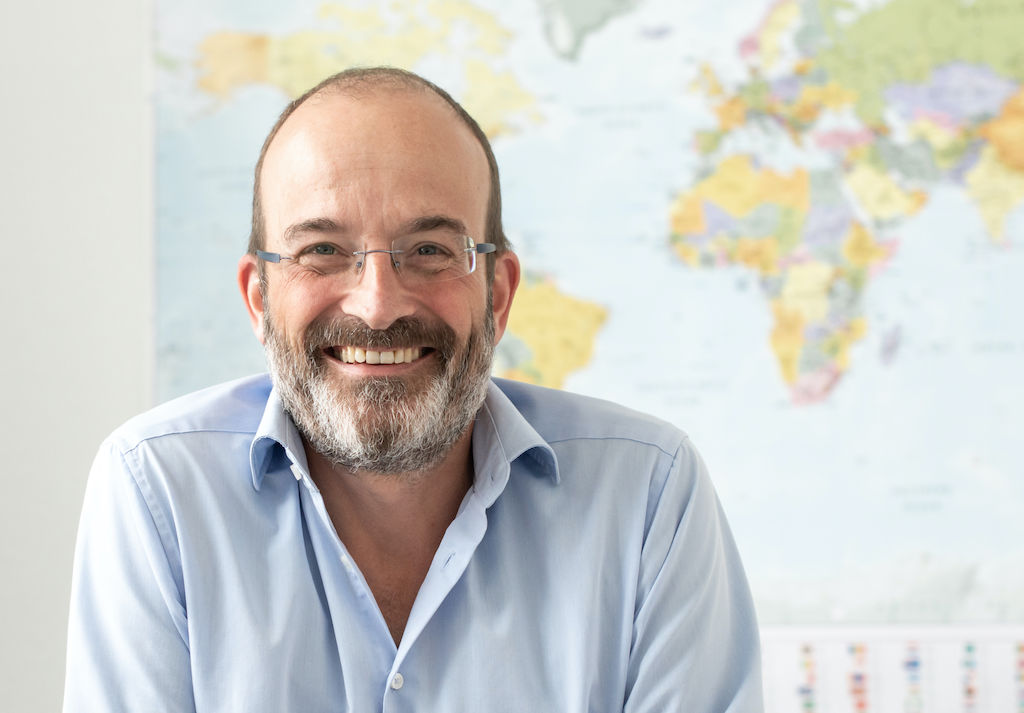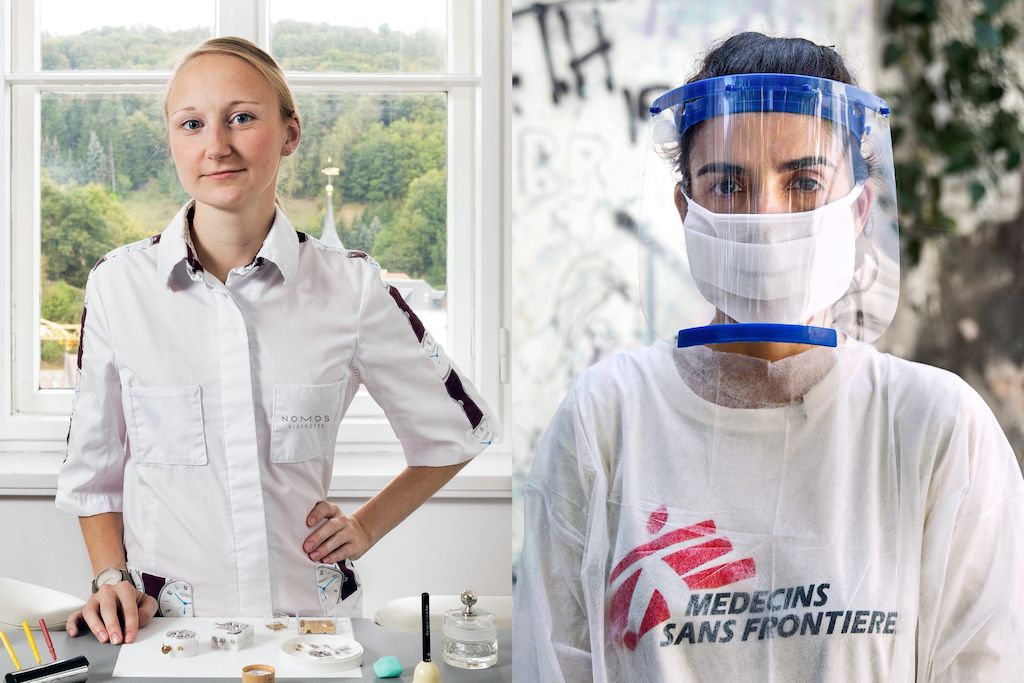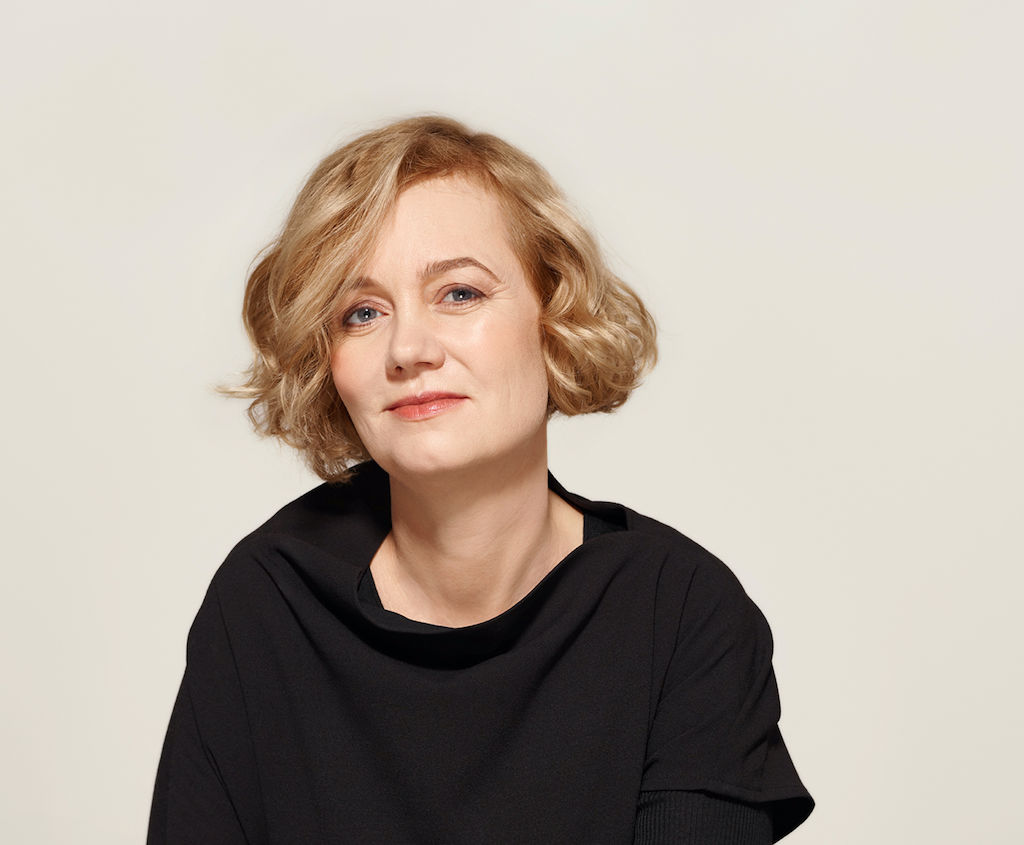Nobel Prize-winning emergency aid organization Doctors Without Borders fights against the consequences of epidemics, natural disasters, and the displacement of people across the world. Florian Westphal is the general director of its German section, Ärzte ohne Grenzen—which NOMOS Glashütte is supporting with a new limited special-edition model of Tangomat: 250 euros from each watch sold goes straight towards providing emergency aid. Here, Florian Westphal tells us all about his work and the organization’s successful cooperation with NOMOS Glashütte, which started in 2012.
Mr. Westphal, mechanical watches and providing aid: How do they go together?
Florian Westphal: At first glance, they don’t seem to have much in common. But I think that our “time for life” slogan summarizes our cooperation well, since NOMOS Glashütte and Doctors Without Borders are working together to save lives.
Could you explain in a few short sentences, for someone who might not know the organization, what Doctors Without Borders does?
F.W.: We provide emergency medical aid around the world. Wherever there are wars, epidemics, or natural disasters threatening people’s lives, we are at work. We offer a wide range of medical services—from providing vaccinations for infants to fighting childhood malnutrition, supporting victims of sexual assault, and doing field surgery—helping those in need regardless of their background, religion, or political beliefs. Doctors Without Borders is independent from governments and business interests, as well as apolitical.
What exactly can you do with 250 euros—could you share some examples with us?
F.W.: Several things come to mind. During a project for Doctors Without Borders, I visited a hospital in the DRC that specialized in treating children suffering from malaria. 250 euros could help us get the necessary medicine to treat 1,470 children, for example. Or we could provide mosquito nets for 118 families, protecting them against mosquitoes and the diseases they spread. In Yemen, 250 euros would cover the cost of anesthetic for ten people requiring surgery, or supply essential medicine for three months to 450 people displaced in camps due to violence.
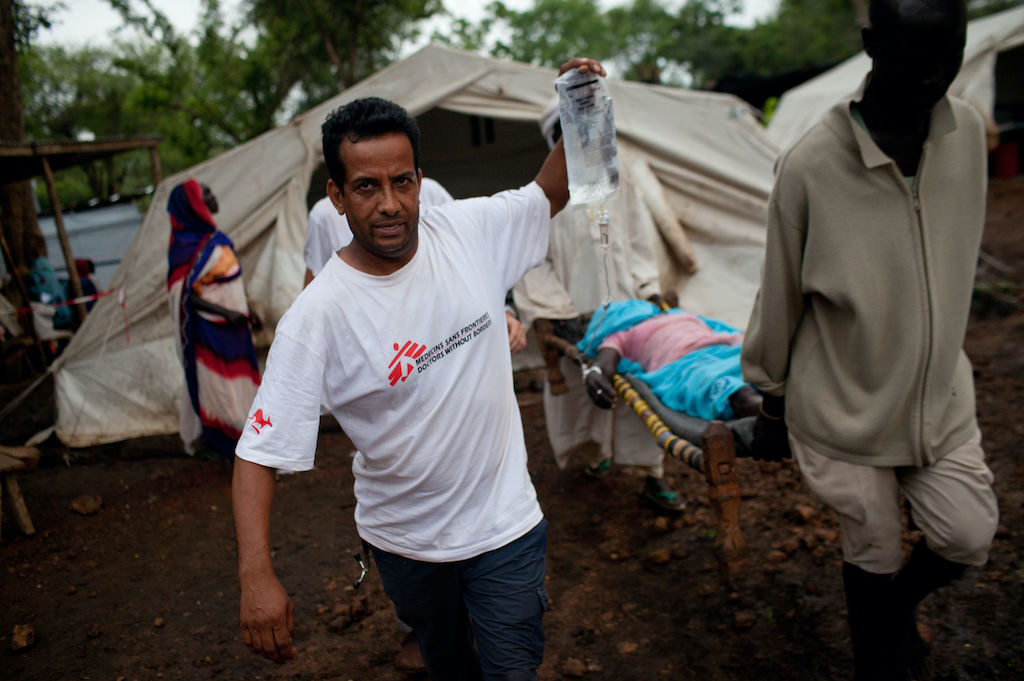
South Sudan: transporting a patient to the ambulance
Can a NOMOS customer purchasing one of these watches be certain that their money will go directly towards those in need? Without deductions?
F.W.: In 2018, Doctors Without Borders invested around 87 cents from every euro donated into its aid projects worldwide. We have held independent certification for years from the DZI, Germany’s charities watchdog, for the responsible allocation of donated funds.
Where is the aid of Doctors Without Borders most urgently needed now, and what are you doing there?
F.W.: At the moment, we are focused on the situation in Yemen—among other projects. The people there have been suffering the effects of a brutal conflict for years. Our teams are helping people there on both sides of the front line. First and foremost, we support the groups most in need—such as pregnant women and children. But I would also like to mention a country that we hear almost nothing about: the Central African Republic. Much of the population has been displaced due to armed violence, and many places lack even basic medical infrastructure. Our teams there carry out more than 800,000 treatments a year.
NOMOS Glashütte has been supporting Doctors Without Borders since 2012. How important are partnerships like this for international emergency aid?
F.W.: Very important. Especially when they are based on mutual respect. This cooperation with NOMOS Glashütte enjoys enthusiastic support from both sides. When it comes to cooperating with businesses, it’s important for us at Doctors Without Borders to make sure we share certain principles and values. That is why we never accept donations from companies in certain industries. These include, for example, the arms industry or pharmaceuticals.
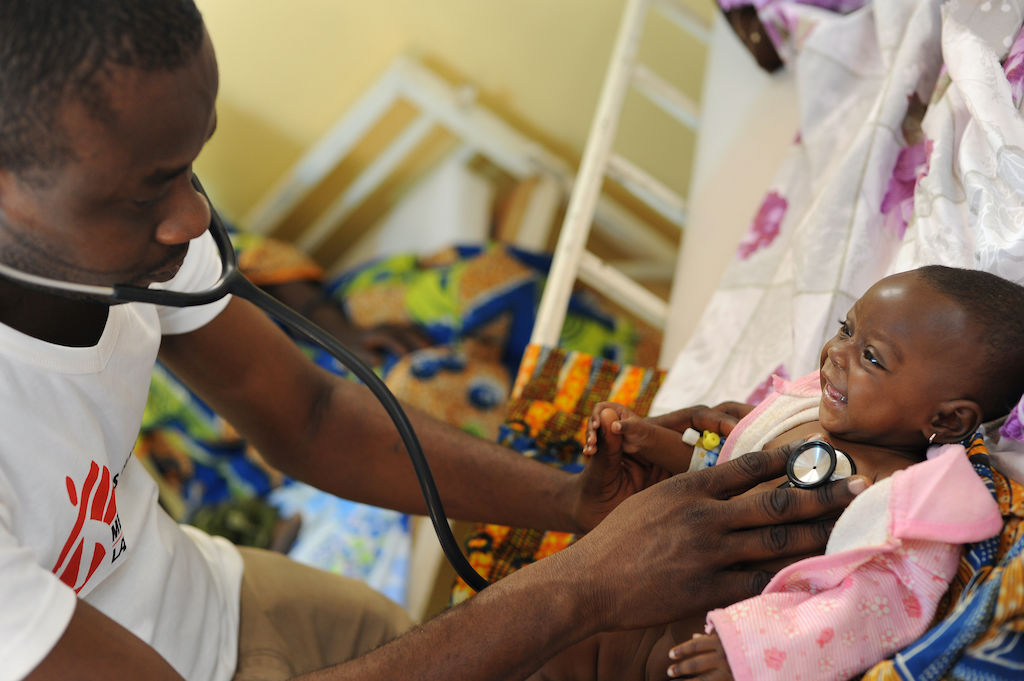
Niger: treating a malnourished child
Let’s finish with a forecast: If you follow the news, there seems to be more crises than ever in the world; things are getting worse and worse. Does it seem that way to Doctors Without Borders? Or rather: Is it too late, in your opinion?
F.W.: I could say we’re running out of time—but that’s a little too cliché for me. Overall, we have established that conflicts and crises around the world are not decreasing in number. A clear indication for that is the increasing number of refugees, which is higher than at any other point in history. At the same time, rich countries are closing their borders. Climate change is also contributing to crises for the inhabitants of poorer countries: Mozambique was struck by devastating tornadoes at the start of the year, for example. And in the region around Lake Chad and the Sahel, we are seeing malnutrition as a result of drought—which is also influenced by climate change. This is an area that will need more of our attention in the future.
PUBLICATION DATE: October 2019
TEXT: NOMOS Glashütte
IMAGES: 1. Médecins Sans Frontières (MSF)/Barbara Sigge, 2. Médecins Sans Frontières (MSF)/Nichole Sobecki, 3. Médecins Sans Frontières (MSF)/Julie Rémy
